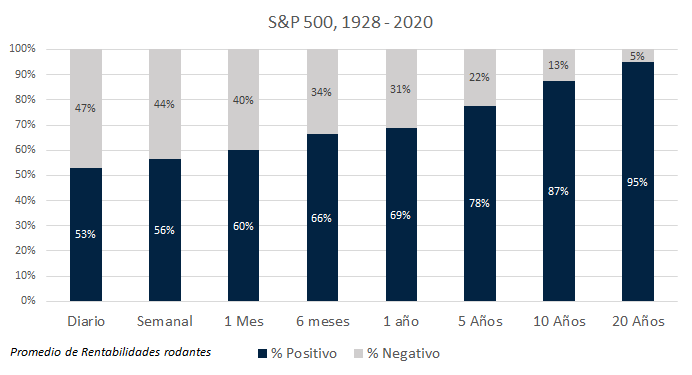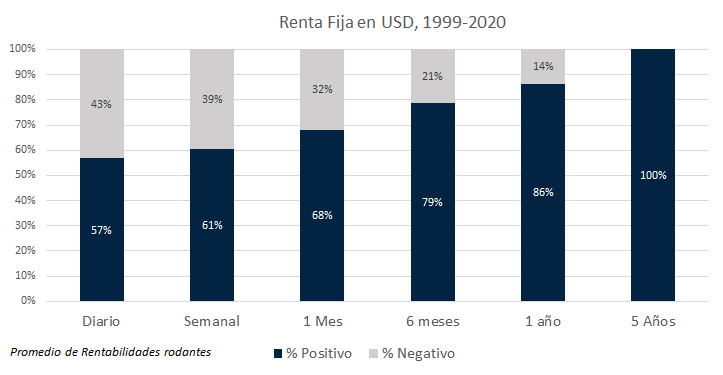In the long run, does the stock market go up?
The well-known phrase of "in the long term, the stock goes up" is a mantra that many of us have heard repeatedly. Is that axiom correct?
Well, first of all, it will always depend on which market we choose. In this case, we are going to use the S&P 500 index.
The graph below shows the % of positive and negative returns given in the S&P 500 since 1928.

As we see, as we increase the term of our investment, the return is more likely to be positive.
Therefore, the long-term premise holds when we look at the S&P 500.
In fact, the only negative 20-year returns we see are investments just before the Wall Street Crash of 1929. For the next 20 years, marked by the interwar period and World War II, the stock market crashed and had a hard time recovering.
On the other hand, if we look at Fixed Income, we see how the probability of being negative decreases, since it is a less volatile asset and offers a better risk-adjusted return.

In any case, we can always generate better returns and, therefore, reduce the probability of being negative, if we choose better assets.
For example, if we had invested in the EuroStoxx 50 20 years ago, today we would have losses.
Therefore, if we want to be precise, we would have to change the famous phrase that titles this post to "in the long term, if we choose well where to invest, the stock market is more likely to go up".
